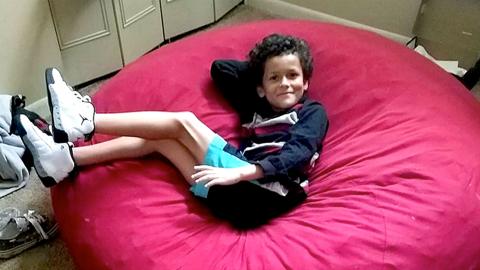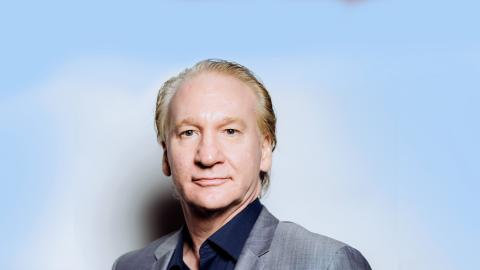
Why Would a 9-Year-Old Come Out as Gay and Take His Own Life? A Closer Look at the Jamel Myles Tragedy
Many are responding to the heartbreaking and shocking story of a 9-year-old boy who recently committed suicide.
Leia Pierce of Denver says her son, Jamel Myles, had just started fourth grade when he took his own life, shortly after coming out to her as gay.
"And he looked so scared when he told me. He was like, 'Mom, I'm gay.' And I thought he was playing, so I looked back because I was driving, and he was all curled up, so scared. And I said, 'I still love you,'" Pierce said.
But for many, the question remains – how can a 9-year-old think they're gay and how is suicide even conceivable to one so young?
Chad Felix Greene, a senior contributor to The Federalist, says cultural pressures are partly to blame.
"LGBT has been intensely focused on sexuality and gender identity in children as a way to prevent the same types of adolescent and teenage anxiety they experienced," Greene told CBN News.
"Unfortunately, they have pushed beyond mere openness about gay people to advocating identity early," he explained. "Kids learn about sexuality and gender identity as options, see LGBT kids celebrated as brave on TV and find they are given special attention."
"Kids do not have the chance to explore and grow," he added. "They are pressured to adopt an identity and feel it defines who they are."
Three Overlapping Issues to Consider
Dr. Michelle Cretella says there are "three separate, though overlapping, issues to this case: suicide, bullying and sexual identity."
"While bullying is never acceptable, many children are bullied, but only a small percentage of them will commit suicide," she told CBN News. "Ninety percent of all individuals who die by suicide have a diagnosed mental disorder. So, tragically, this young boy, in addition to being bullied, likely struggled with major depression that went unrecognized but could have been treated had it been diagnosed. There is a great need to educate parents and laypeople about the warning signs of depression throughout childhood."
Dr. Cretella says of the issue of same-sex attractions, "Breaking free of sex-stereotyped behaviors and self-declaration does not mean that a child is LGBT."
She highlighted the findings of a 2002 landmark study that established that children are not born gay.
"The short answer to the question of can children know they are homosexual is – no. No one is born LGBT and same-sex attractions are not enduring for over two-thirds of children."
A recent study by Brown University on transgender youth follows the path that kids are often influenced when it comes to sexuality. The study found that social media and friends can influence teens to change their gender identity.
"In online forums, parents have been reporting that their children are experiencing what is described here as 'rapid-onset gender dysphoria,' appearing for the first time during puberty or even after its completion," the study's author Dr. Lisa Littman said.
"The onset of gender dysphoria seemed to occur in the context of belonging to a peer group where one, multiple, or even all of the friends have become gender dysphoric and transgender-identified during the same timeframe," she explained. "Parents also report that their children exhibited an increase in social media/internet use prior to disclosure of a transgender identity."
Brown University removed an article about the study from its website after receiving complaints about the findings.
How Parents Should Respond
Meanwhile, Greene shared how parents should respond if their child says or thinks they're gay.
"I first expressed my curiosity about other boys, male athletes, etc. with my dad when he tried to have 'the talk' with me when I was 10," explained Greene. "He asked me if I liked girls yet and I innocently told him that I liked boys, confused by his growing concern. That made me even more curious to figure out what the big deal was."
He added, "There has to be a balance. Telling a child, they are something specific and different from other kids creates an intense focus or insecurity over being that thing. I think if my dad had just told me not to worry so much and we would talk about it more when I was older may have distracted me from becoming fixated on why I felt differently than other kids."
"A child shouldn't be labeled with adult concepts so young," said Greene.
He admits that Jamel's story is both 'troubling and difficult.'
"I feel there is more to this story we have not fully seen yet," he said. "Most, if not all, children are bullied or made fun of. I certainly was. Every single day. But I also lived in an era when my family encouraged me to stand up for myself and wouldn't let me get lost in depression. I don't think kids have that today."
"It is also important to recognize that LGBT is placing blame on other 9-year-old children for not appreciating or accepting their classmate's sexual or gender identity," Greene continued. "We don't know the nature of the bullying but harming himself four days later seems very strange. His mannerisms didn't change. Surely his classmates knew he was feminine and different from other boys. His peers might not have had any idea what he even meant."
"This child's unique and unimaginable tragedy should not be exploited for a larger social message. His mother was trying to be supportive of the way she believed was best, just as she has been encouraged for doing. It's no one's fault. But there has to be something we aren't seeing with this story," Greene said.



